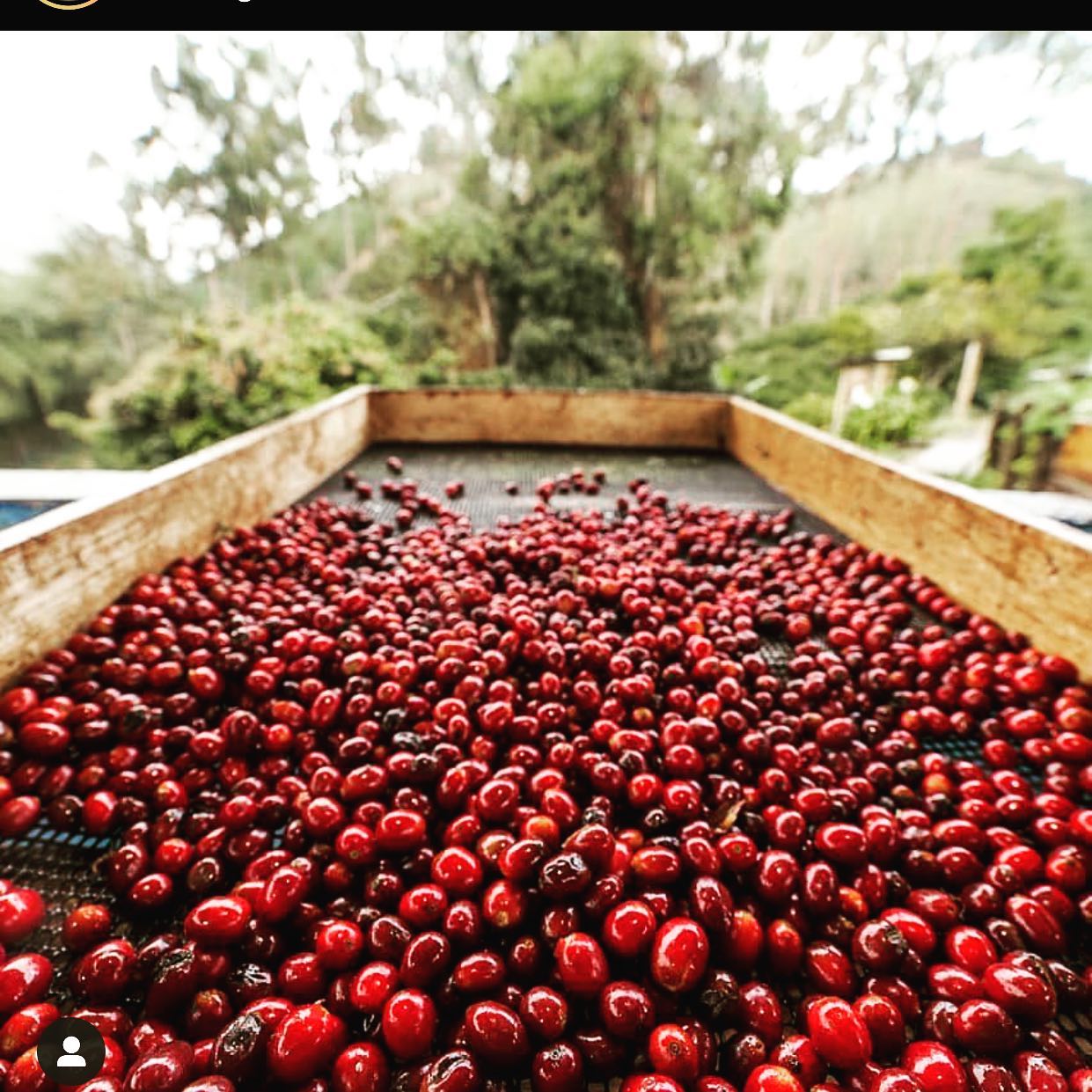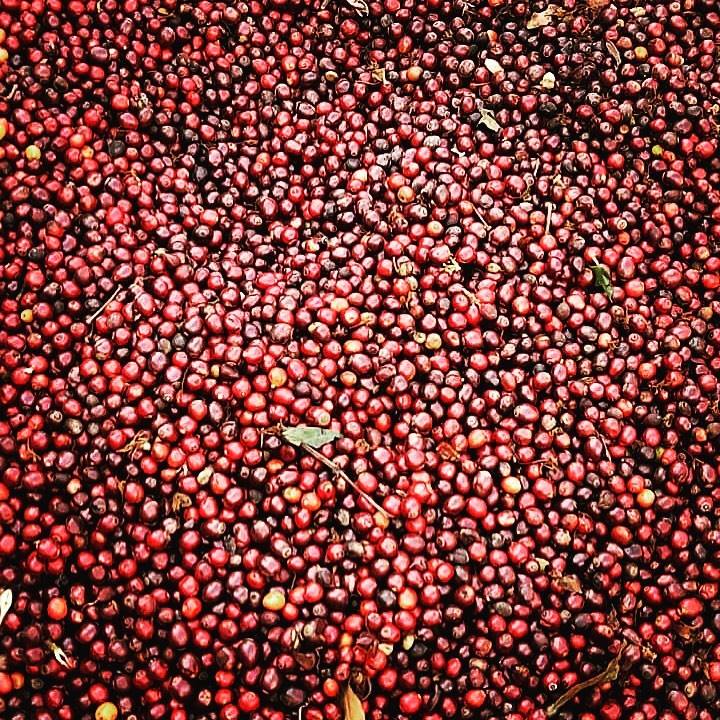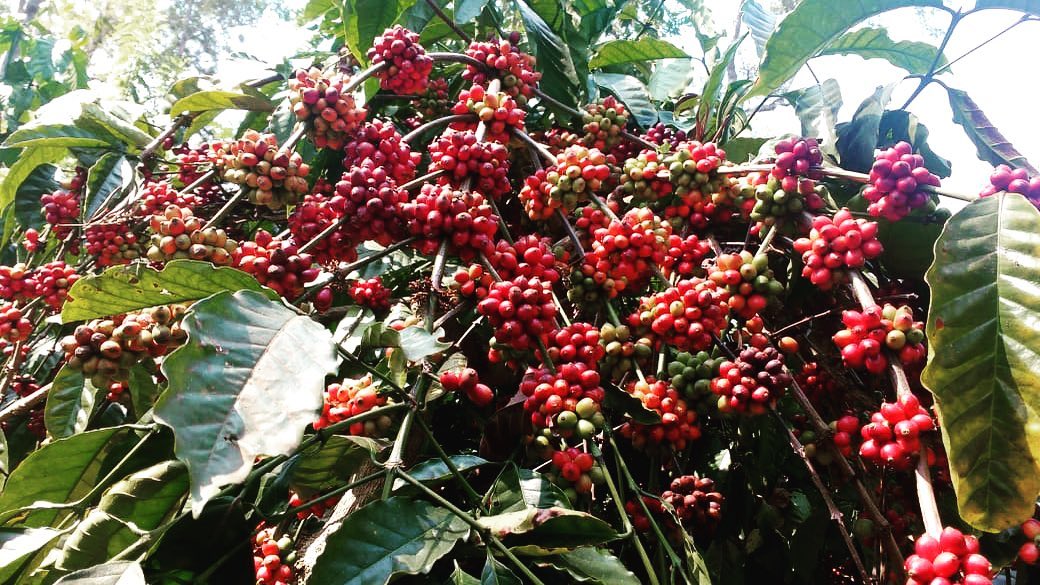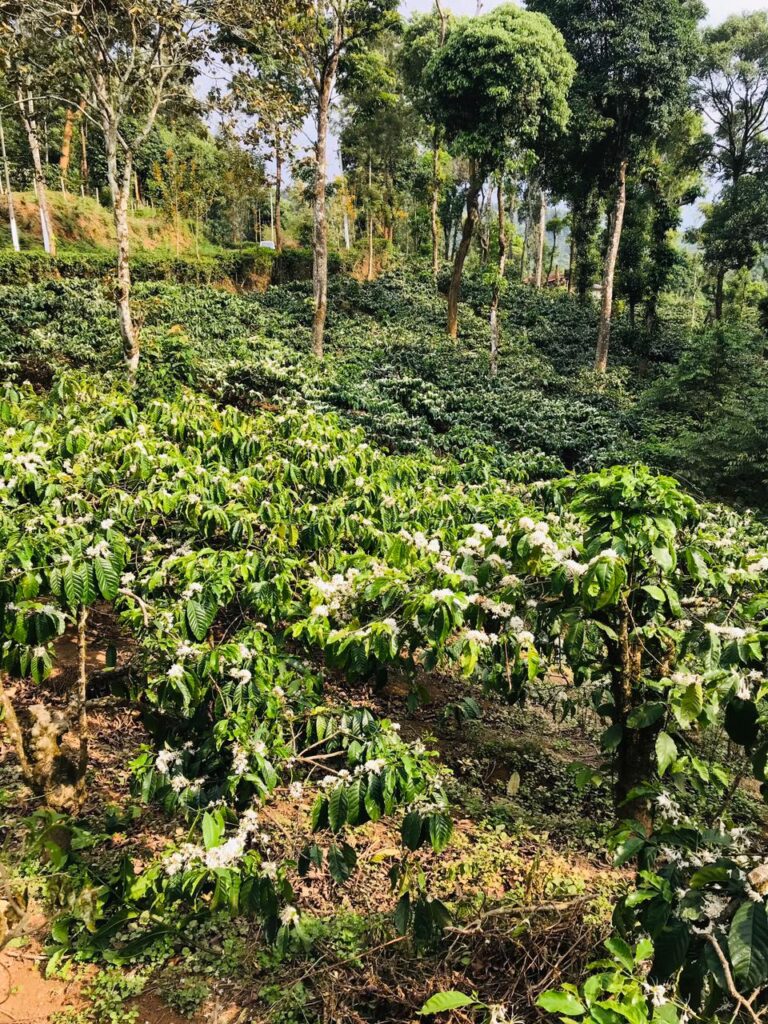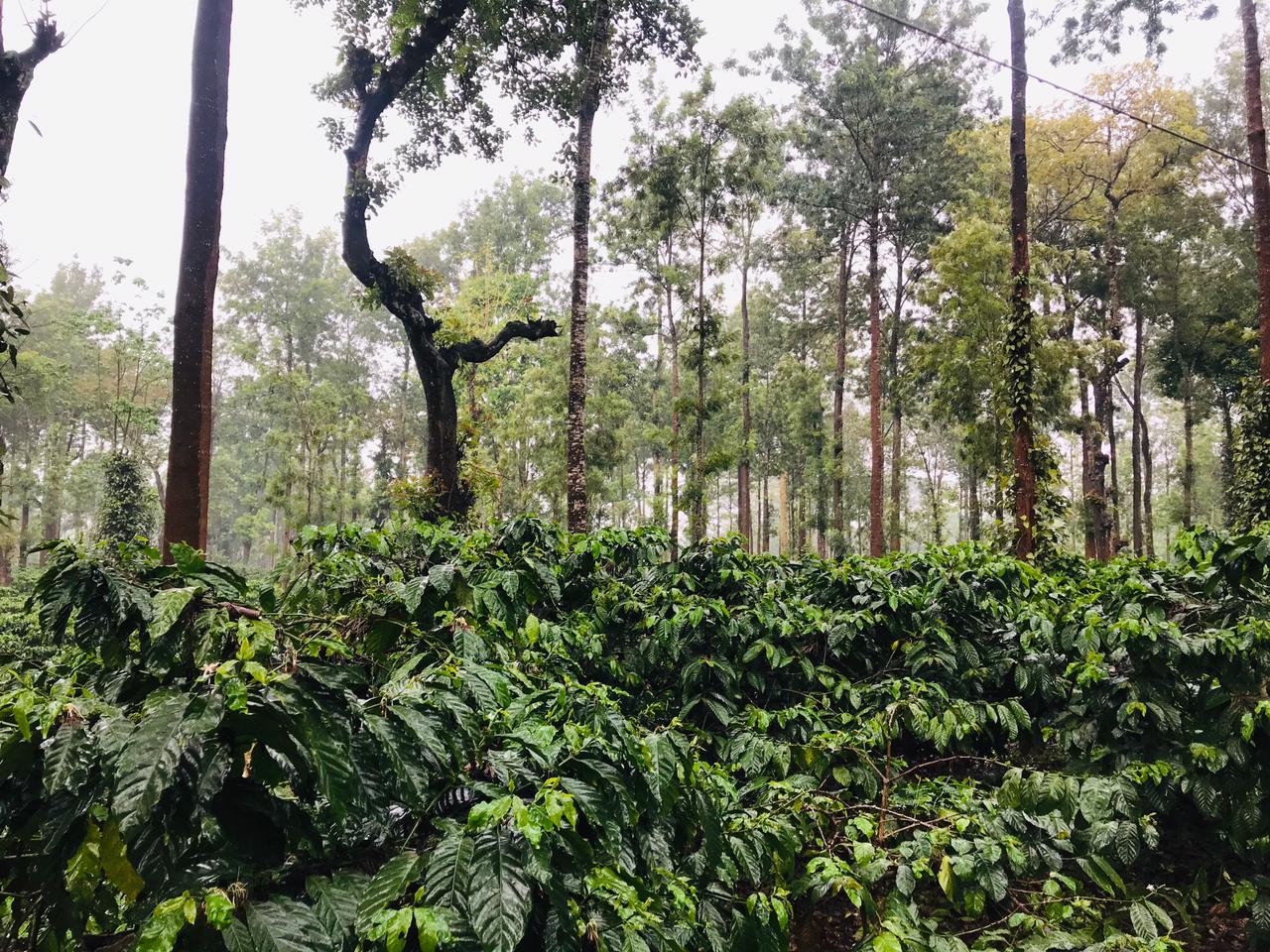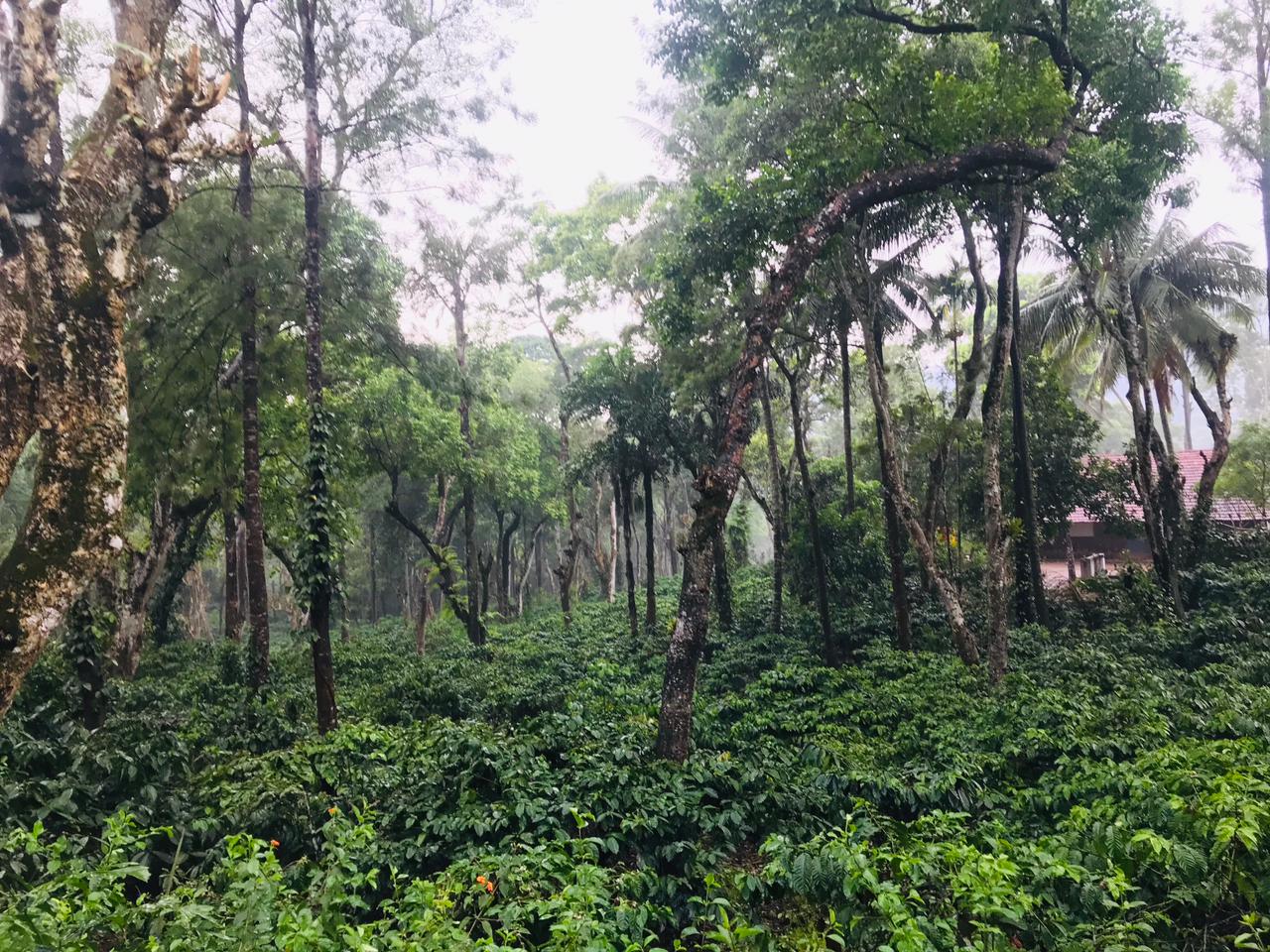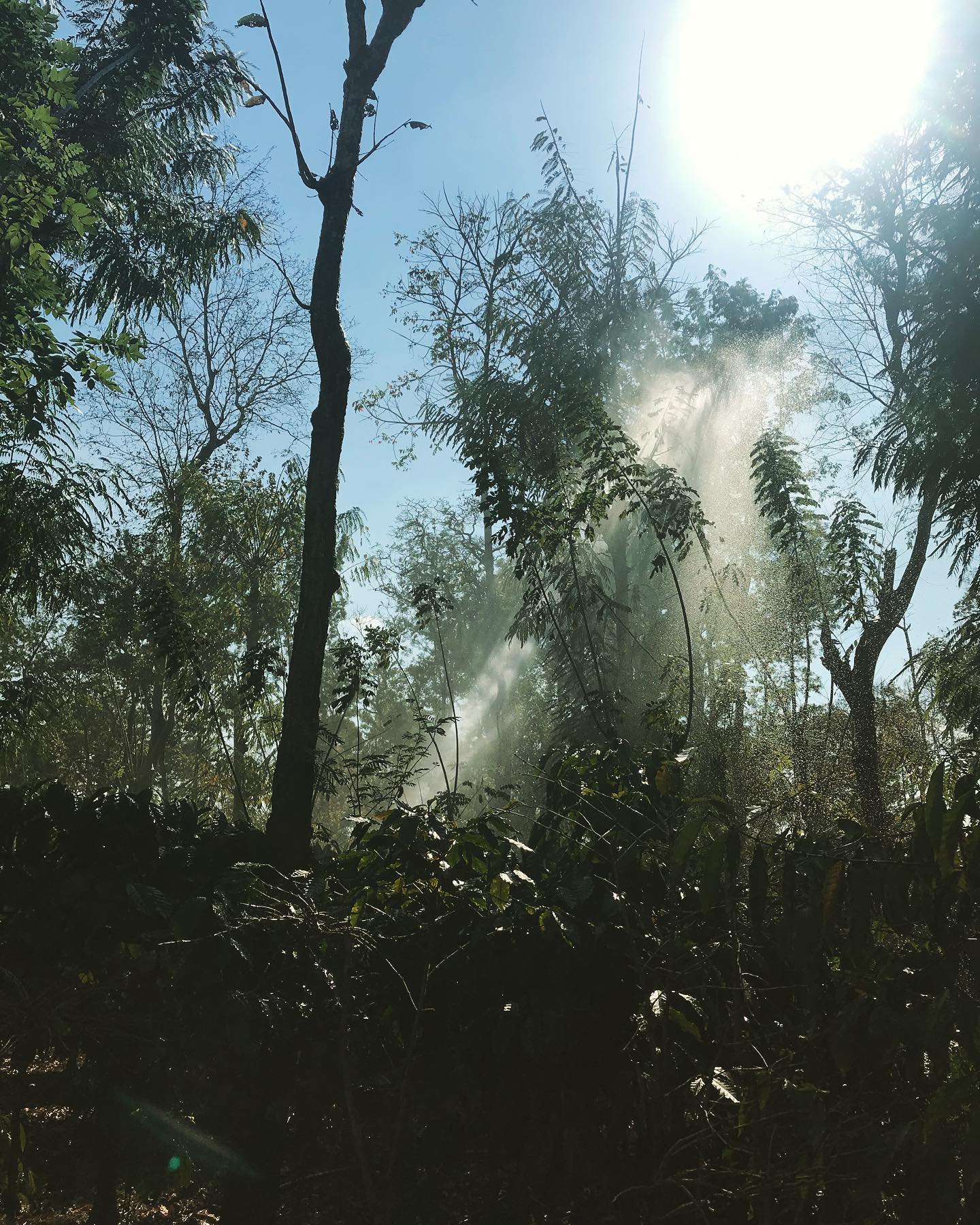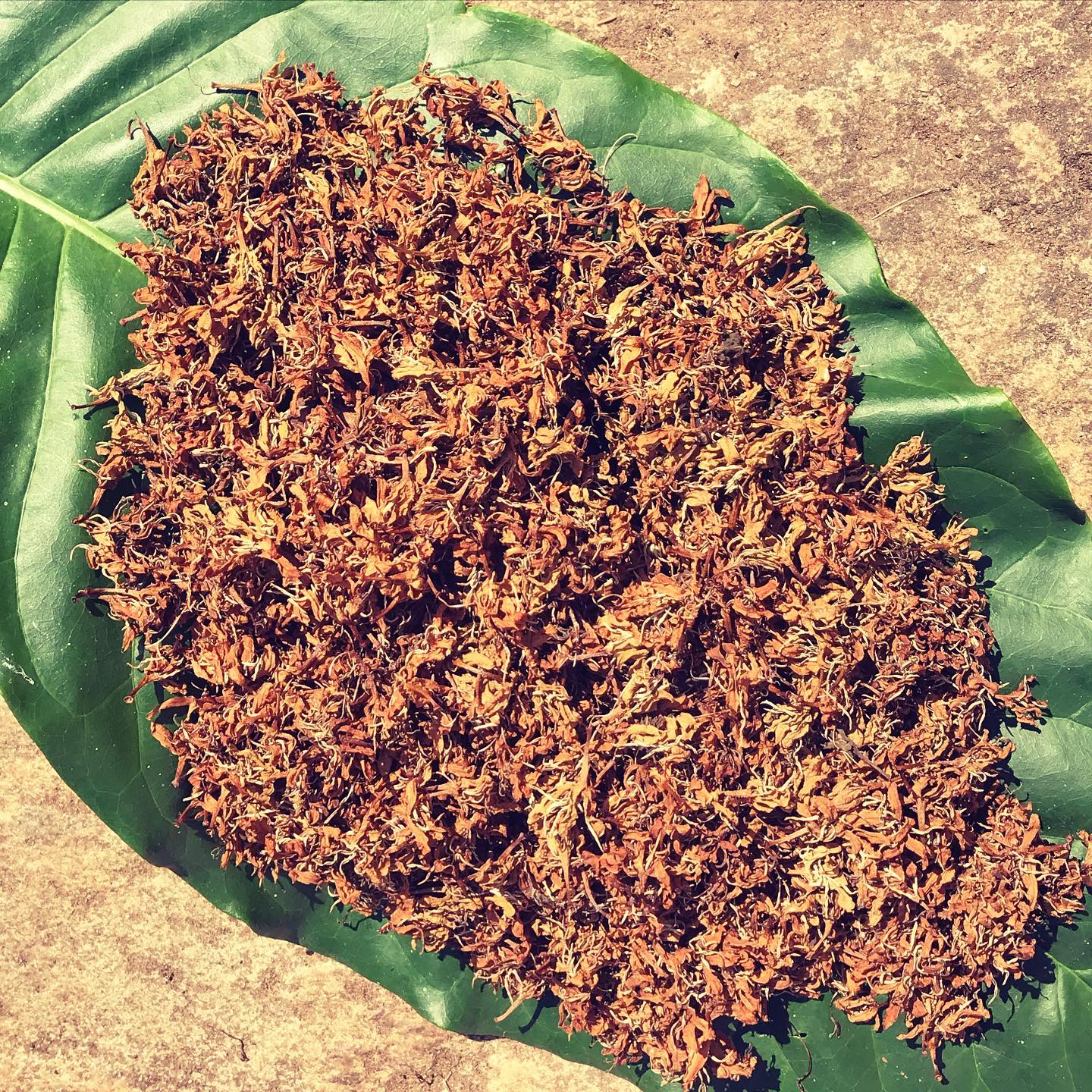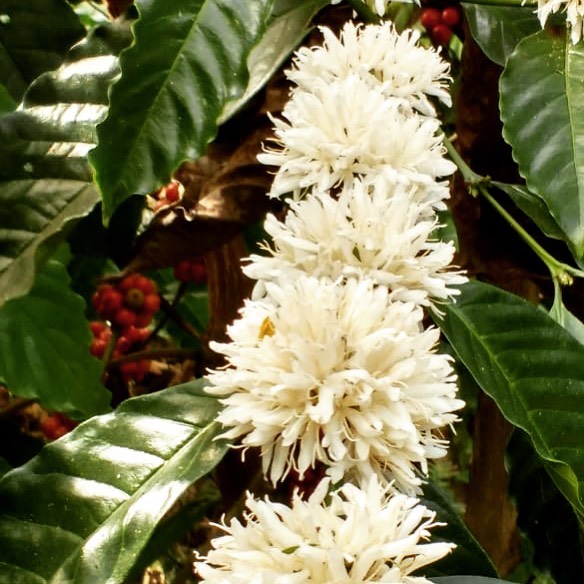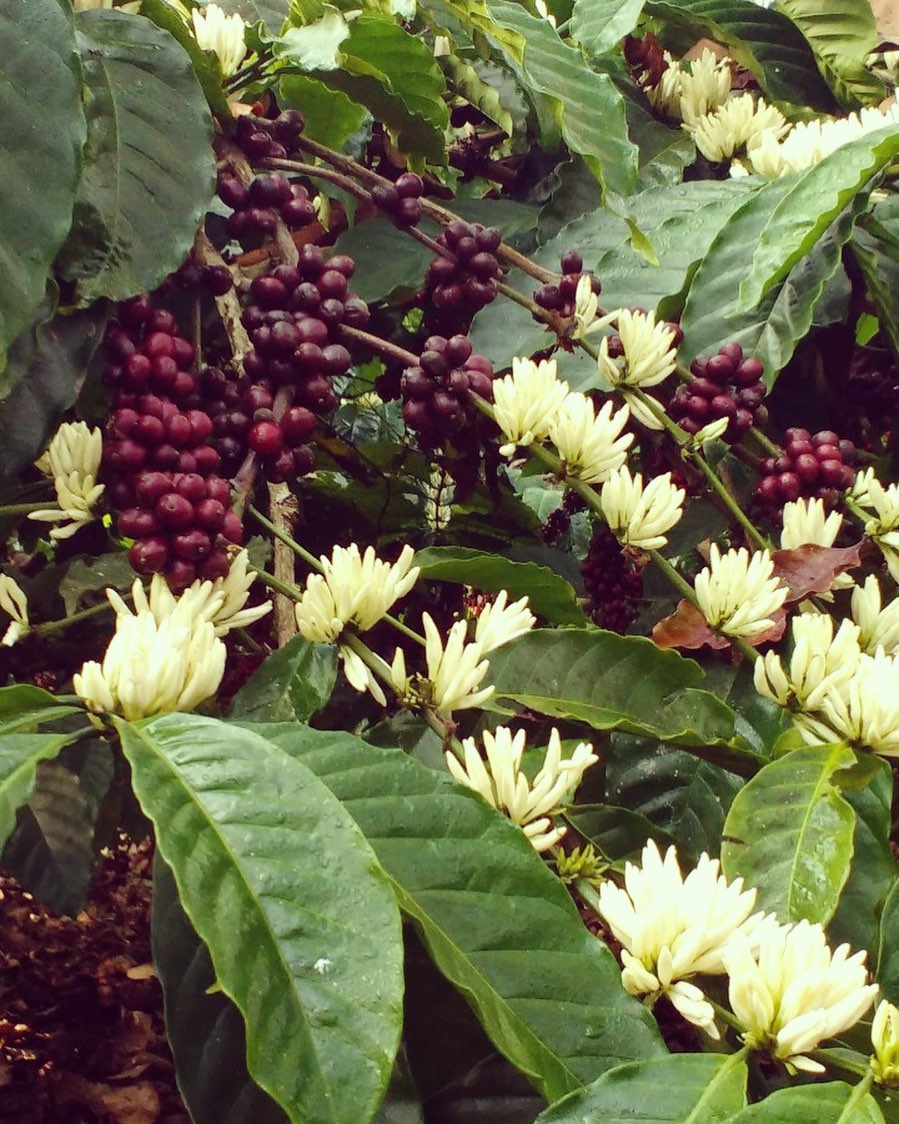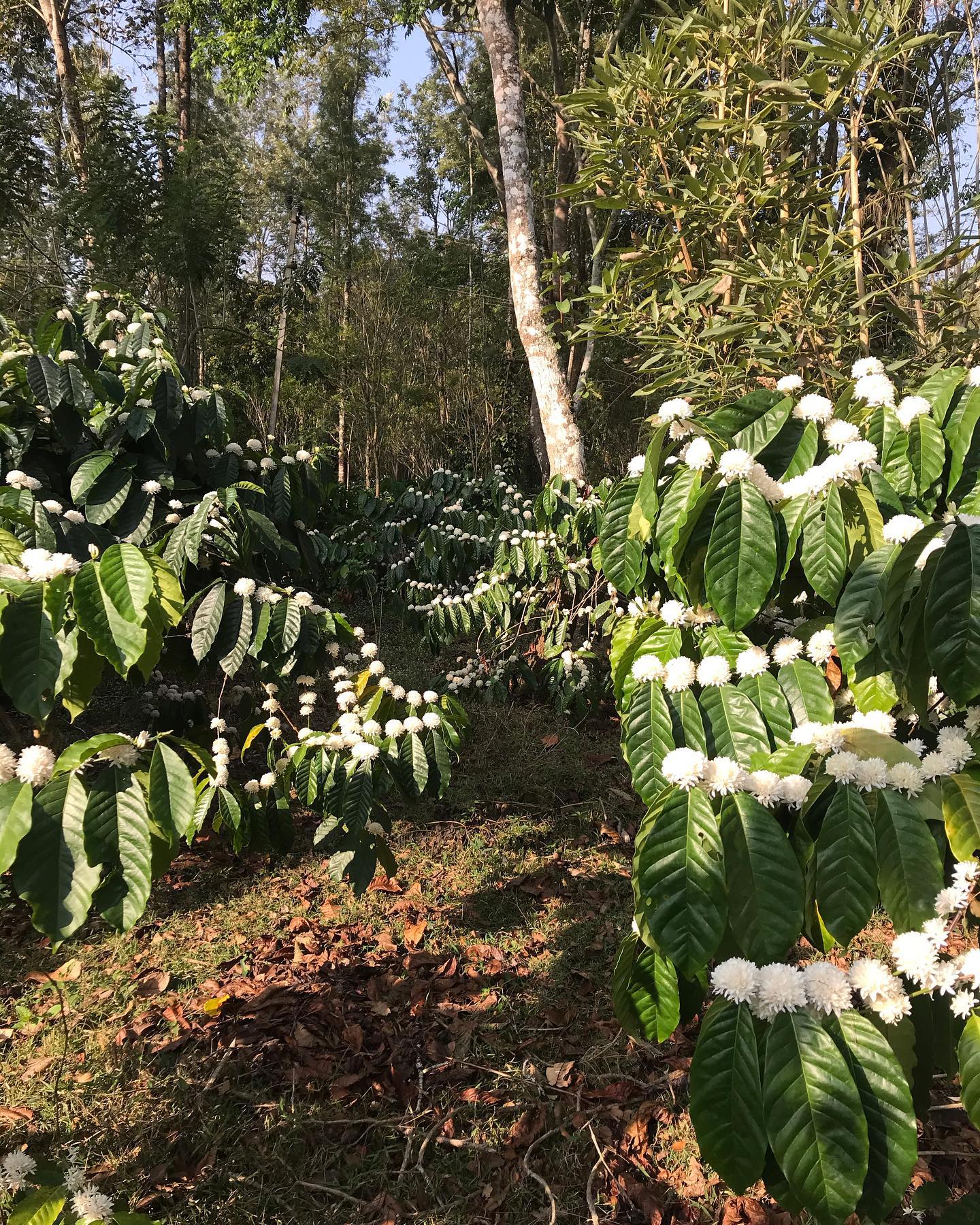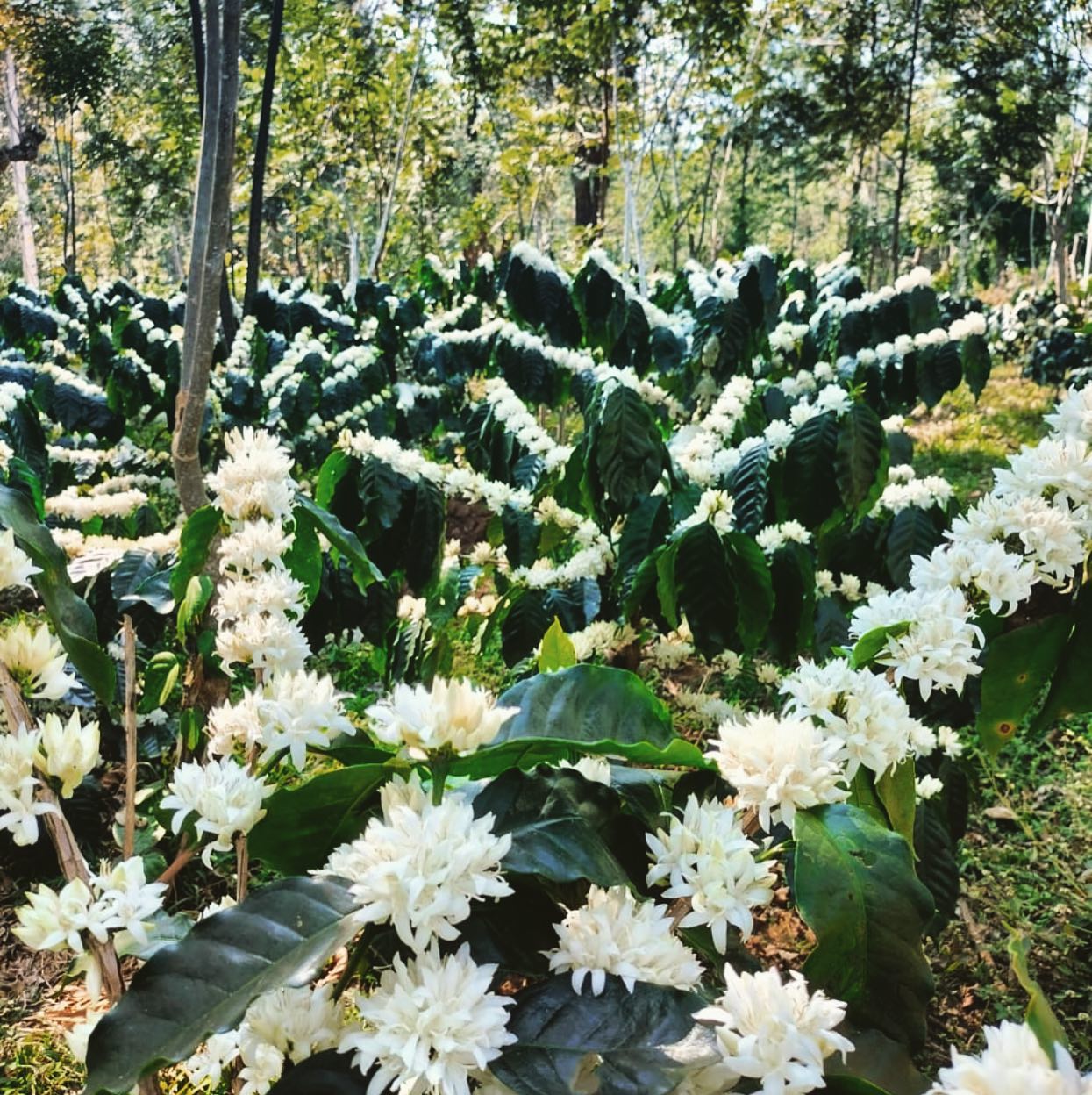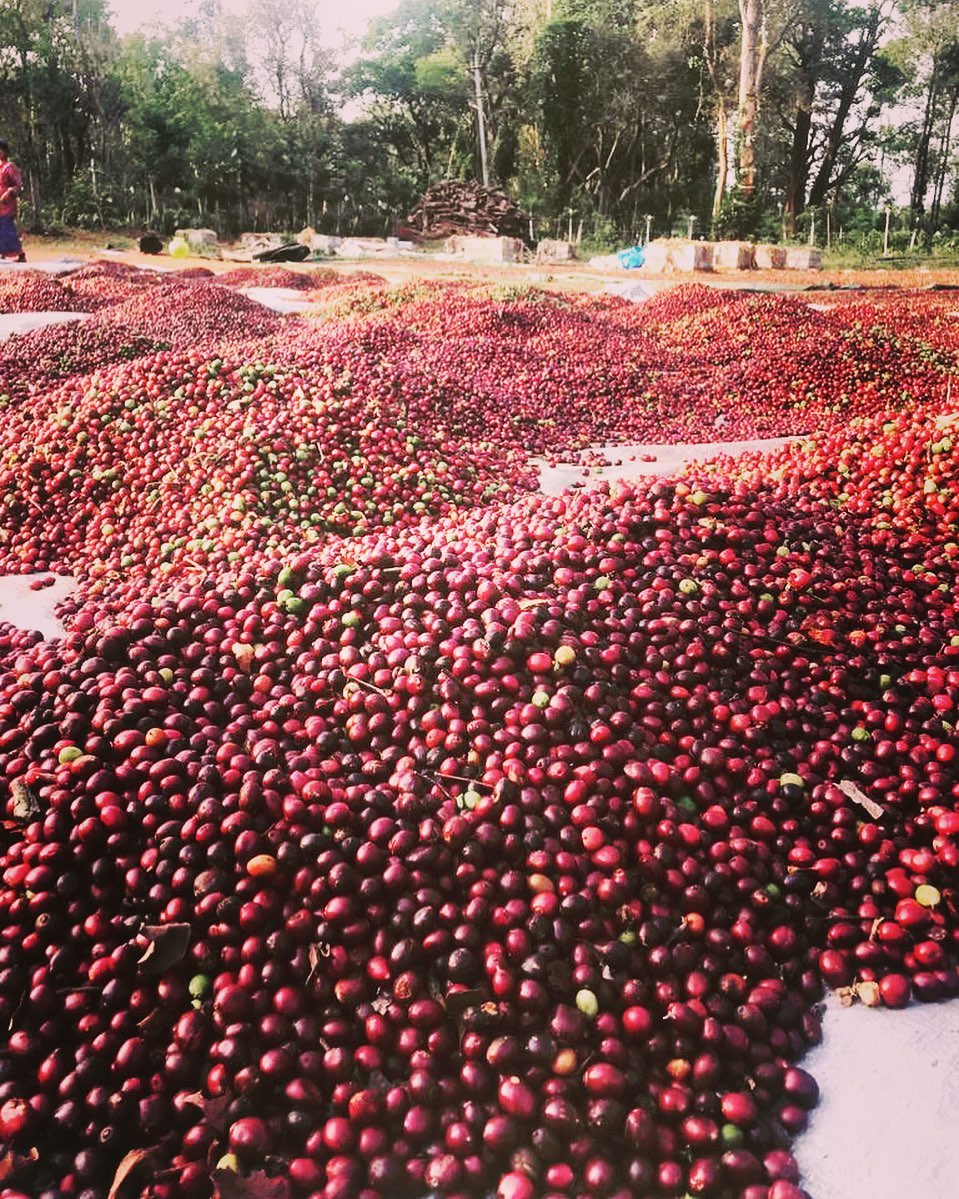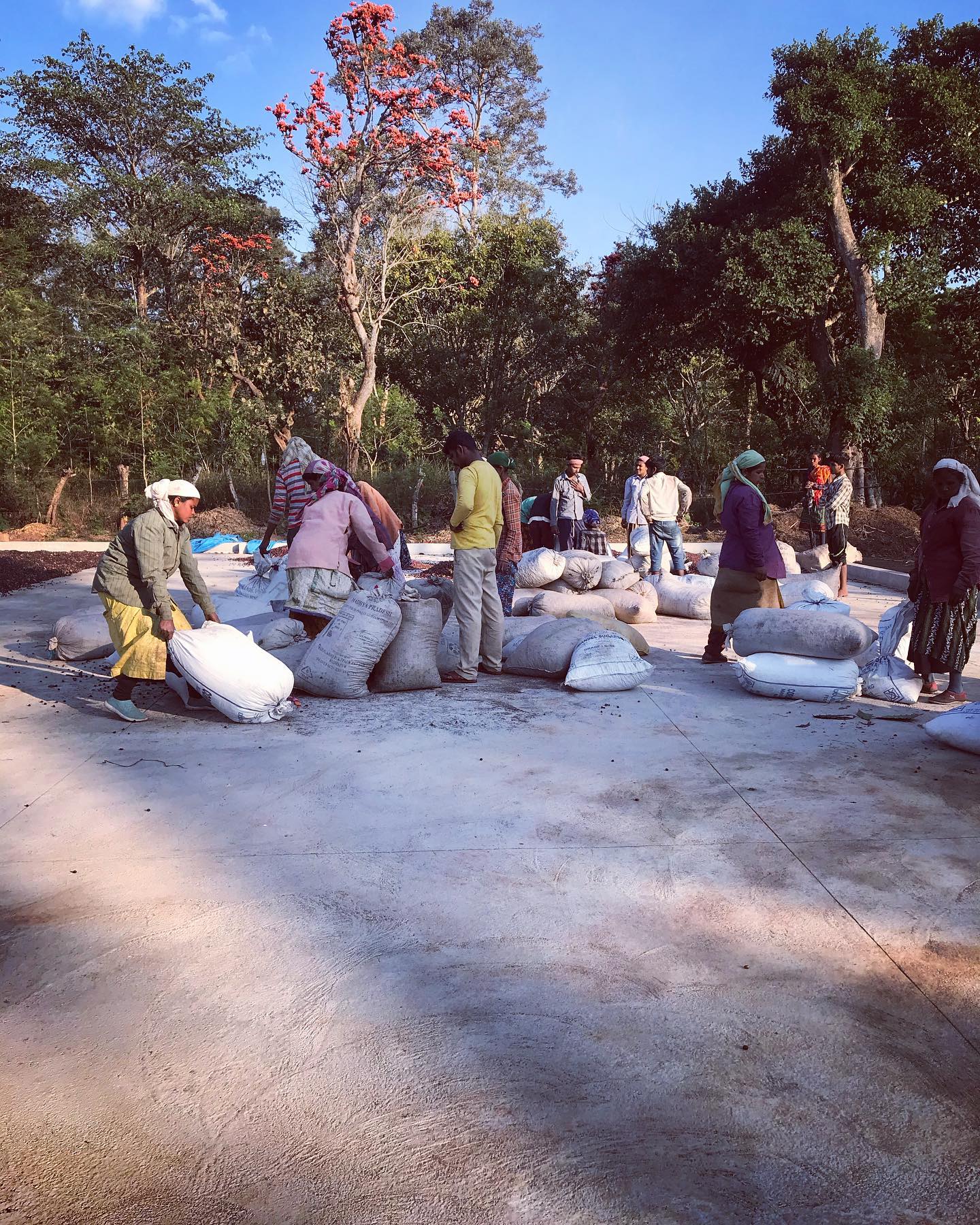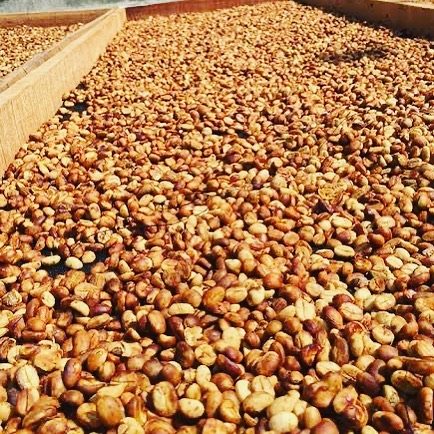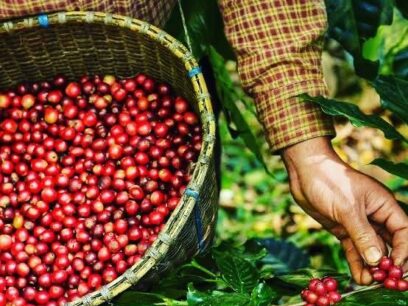
JOURNEY FROM RASULPUR FARM ESTATES TO YOUR CUP
The journey from 7 seeds to the global market Indian coffees have come a long way. Rasulpur estate owners are fifth generation coffee planters showcasing the best of shade grown, hand picked, certified, traceable, single origin specialty coffees of India.
Our coffee is grown on the banks of the river Kaveri and each of the beans are grown to perfection due to the intrinsic geometrical and climatic pecularities.
RASULPUR HONEY PROCESSED
Rasulpur, Coorg, India
Arabica – Chandragiri
870m
Nov-Jan
Honey processed
Single Origin Farm
——–
——–
Shade Grown, Biodiversity, Animal Friendly
No
GI Tag (Coorg)
$6.54 per pound ($13.10 per kg)
$3.6 per pound
RASULPUR ANAEROBIC FERMENTED
Rasulpur, Coorg, India
Arabica – Catuai
800m
Nov-Jan
Anaerobic Fermentation
Single Origin Farm
——–
——–
Shade Grown, Biodiversity, Animal Friendly
No
GI Tag (Coorg)
$7.05 per pound ($14.08 per kg)
$4.08 per pound
RASULPUR PASSIONFRUIT FERMENTED
Rasulpur, Coorg, India
Arabica – Catimor
870m
Nov-Jan
Passionfruit fermented
Single Origin Farm
——–
——–
Shade Grown, Biodiversity, Animal Friendly
No
GI Tag (Coorg)
$7.52 per pound ($15.06 per kg)
$4.56 per pound
RASULPUR FULL WASHED
Rasulpur, Coorg, India
Arabica – Chandragiri
870m
Nov-Jan
Full Washed
Single Origin Farm
——–
——–
Shade Grown, Biodiversity, Animal Friendly
Yes
GI Tag (Coorg)
$6.23 per pound ($12.5 per kg)
$3.3 per pound
RASULPUR NATURALS
Abiyal, Coorg, India
Arabica – Mixed
1100m
Nov-Jan
Naturals
Single Origin Farm
——–
——–
Shade Grown, Biodiversity, Animal Friendly
No
GI Tag (Coorg)
$5.32 per pound ($10.66 per kg)
$2.4 per pound
RASULPUR HONEY PROCESS – ROBUSTA
Rasulpur, Coorg, India
Robusta – Mixed
860m
Nov-Jan
Honey Processed
Single Origin Farm
——–
——–
Shade Grown, Biodiversity, Animal Friendly
No
GI Tag (Coorg)
$5.02 per pound ($10.05 per kg)
$2.1 per pound
Logistics
Pickup in USA
10 x 60 kg bags
Door Delivery
Continental Terminals – New Jersey
Jute, ISPM certified pallets

Cupping Profile
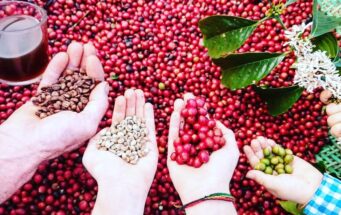
About Origin
Rasulpur coffee growing journey all started with growing coffee on a virgin soil many years back by their third generation planters on the banks of the river Kaveri. The highlights of their estate has been the coffee bean size ( % of top grade bean graded as a, aa, aaa) which has been very high because of the intrinsic geometrical & climatic peculiarities along with high humus content in the soil, Lying in the ecological hotspot coffee has a sustainable quality, coffee here is shade grown under very high organic carbon. The growers maintain natural forest species of trees along with plenty of fruit and other shade trees providing 60% shade, some areas have even more shade and a very high biodiversity.
They do use both organic and inorganic fertilizers thereby yielding an average of about 30-40 bags of cherry /acre. At their estates, wild life thrives and animals like elephants, peacocks, deer & civet cats frequent the estates, whereas panthers and tigers visit occasionally. Their estate houses plenty of migratory and local bird species.
The Process
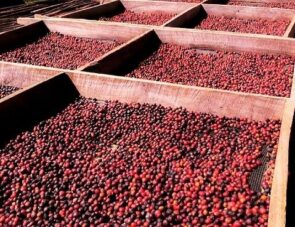
Sun Dried / Natural
A natural processed coffee, also referred to as dry processed, is a traditional yet common way to process coffee today. It involves drying out the entire freshly picked coffee cherry with the seed still inside by placing them on drying beds in the sun. Throughout the course of 3-6 weeks, the coffees will ferment, as we rake these cherries and rotate them to prevent spoiling.
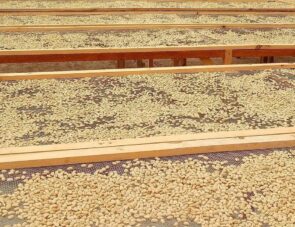
Wet Process / Parchment
Machines called pulpers remove the seeds from the cherries before drying them. However, it is not just any cherry that gets their seed removed. These cherries must have the perfect amount of ripeness to make sure they are sweet enough, and go through a sorter for density. Once these pulpers remove the skin and pulp from the seeds, the seeds go into tanks full of water. The water ultimately washes the rest of the mucilage and fruit caked onto the seed. Finally, the seeds go onto beds in the sun to dry out. Washed processed coffees have cleaner, more crisp tasting notes than natural processed coffees.
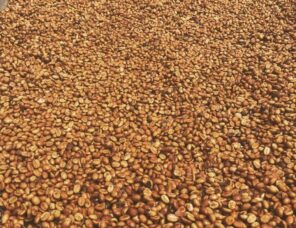
Honey Processed
Honey processed coffee is a method that involves a combination of both the natural and washed methods. During honey processing, a pulper removes the seed from the cherry before it dries out. However, it does not go into a washing tank to get rid of the mucilage. That mucilage, which is what the honey refers to, stays on the seed as it dries in the sun afterwards. The amount of mucilage left behind determines the sweetness, and there are even machines to control the amount on the seed. The seed then finishes out drying on the bed, and also gets raked and rotated to avoid mold. Like washed coffees, they have cleaner bodies than natural coffees. Honey processed coffees, also have richer notes of syrupy sweetness thanks to the left over mucilage. There is more pronounced acidity as well.
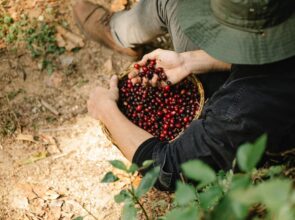
Fermented Microlots
Coffee beans can be manipulated at the fermentation stage to introduce a wide range of flavors profiles. .We ferment coffee with fruits, yeast, milk etc. We customize as per our clients requests.

Hand Picked
Coffee cherries are carefully handpicked. This process is usually meticulous and often leads to high grade coffee at the end of the processing pipeline.
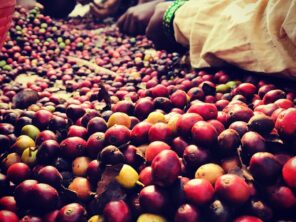
Manual Sorting
Post processing, coffee beans are manually sorted by hand to remove any defectives and other impurities to achieve a fine quality that is truly artisanal.

